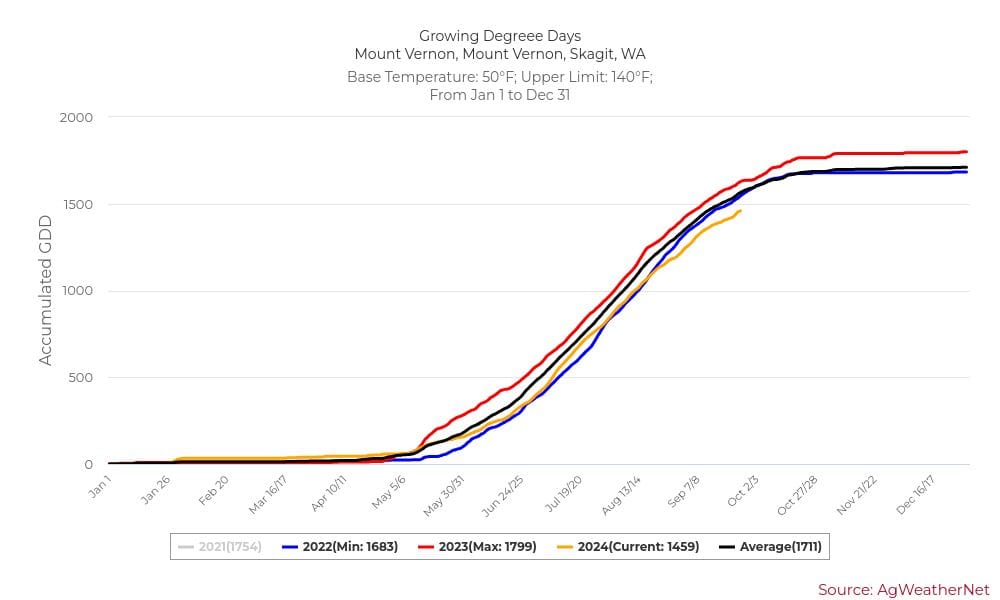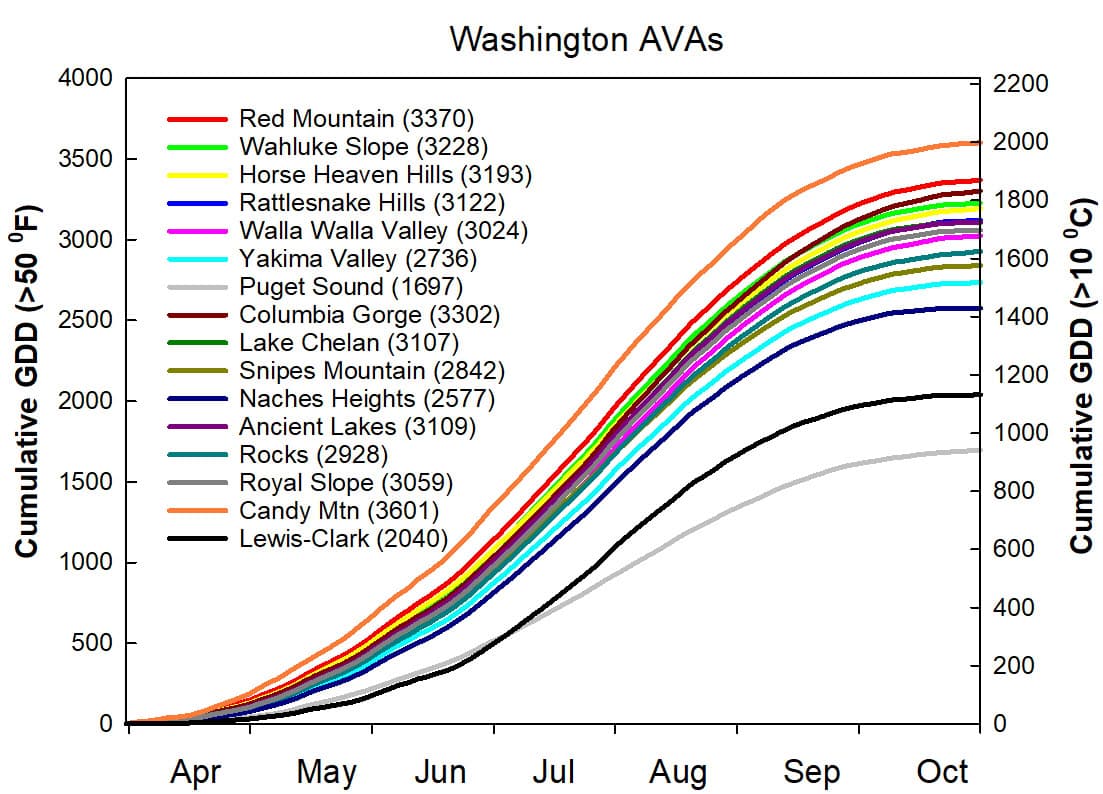Seed and Plant Selection
Before choosing vegetables for your garden, you want to make sure that your plant is appropriate for the Pacific Northwest. Our short summers make some crops unrealistic for most gardeners. It is essential to consider if the crop you plant will have the opportunity to mature.
Days to Harvest/Days to Maturity
Days to harvest and days to maturity are often used interchangeably. The number is roughly how many days from planting until you can expect ripe fruit. The numbers for a particular plant variety can vary dramatically from one seed company to another. Results will also vary based on your climate and planting location. Although not exact, these numbers are useful to distinguish varieties as early (65 days or less), mid-season (65 to 80 days), and late-season (80 days or more). For the Pacific Northwest, gardeners should mostly look at early varieties unless they have a greenhouse.
Growing Days
All days are not created equal for growing plants. Your goal in starting plants indoors is to maximize the available growing season. Growing Degree Days (GDD) are days that meet or exceed a base temperature where the plants receive adequate warmth for tissue growth. Base temperatures vary by crop type. Wheat requires less warmth to grow than a tomato. The base temperature for warm season crops such as tomatoes and peppers is 50 °F. GDD is calculated by subtracting the base temperature (50 °F in this case) from the average daily temperature (add the high and the low temperature for the day and divide by two). If the resulting value is less than 0, then it is set to 0. GDD units are always positive. If it is above 50, it is a GDD. If a tomato variety lists 60 days to harvest, you will need 60 GDD for that plant to produce ripe fruit. Regional GDD data is maintained for growers to estimate when to plant based on historical averages. Learn more about Growing Days from WSU.
Frost Dates (Data source WSU AgWeatherNet)
| Station | Avg Last Spring Frost Date (Temp) | Avg First Frost Date (Temp) | Frost Free Days |
Growing Days (GDD) |
| Mount Vernon | April 10 (31°F) | October 22 (31°F) | 214 |
1707 |
| Concrete | April 9 (30°F) |
November 11 (29°F) | 206 |
2097 |
| Anacortes |
February 26 (30°F) |
November 27 (32°F) | 255 |
1509 |
Find your Frost Date at WSU's AgWeatherNet
Annual Rainfall - Mount Vernon, WA
Get WSU's annual rainfall info for your location

Growing Degree Day Data Mount Vernon

Get WSU's growing degree day info for your location
Growing Degree Day Data Washington State
